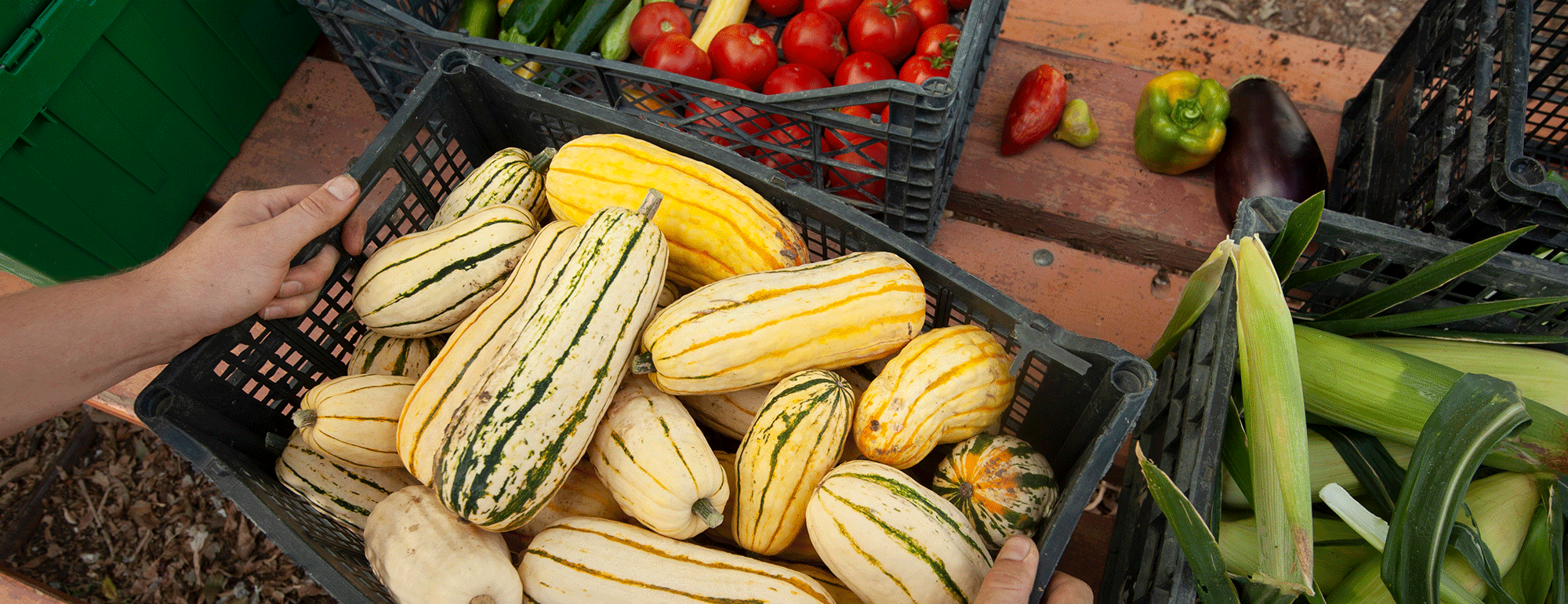What is food loss and food waste?
Food loss and food waste is simply food that doesn’t get eaten or used. Food loss can happen because food spoils or gets damaged before it reaches stores shelves or our homes. Food can be lost at the farm during harvest due to drought or storms. Food can get thrown away after crops become spoiled by insects, rodents, birds and bacteria. Food can also get damaged by poor handling during transportation, processing and distribution.
Food waste happens when edible food is thrown away. Food that has reached its expiration date or is considered unappealing often gets tossed away by consumers, restaurants, hotels and grocery stores. Most of the time, food waste ends up in landfills with other garbage, where it can take weeks or months to decompose.


How we are playing a role
Researchers, faculty and students at UC Davis are taking on food loss and waste from the farm to the kitchen. The Food Loss and Waste Collaborative is an interdisciplinary research program focused on developing solutions and innovative new approaches to reduce food loss and waste throughout the food life cycle, help the environment and get food to the people that need it.
The team of interdisciplinary experts work together to address this worldwide problem by dividing research into four main areas: metrics and impact, food supply chain efficiency, consumer behavior and awareness, and novel food waste recovery and recycling solutions.

